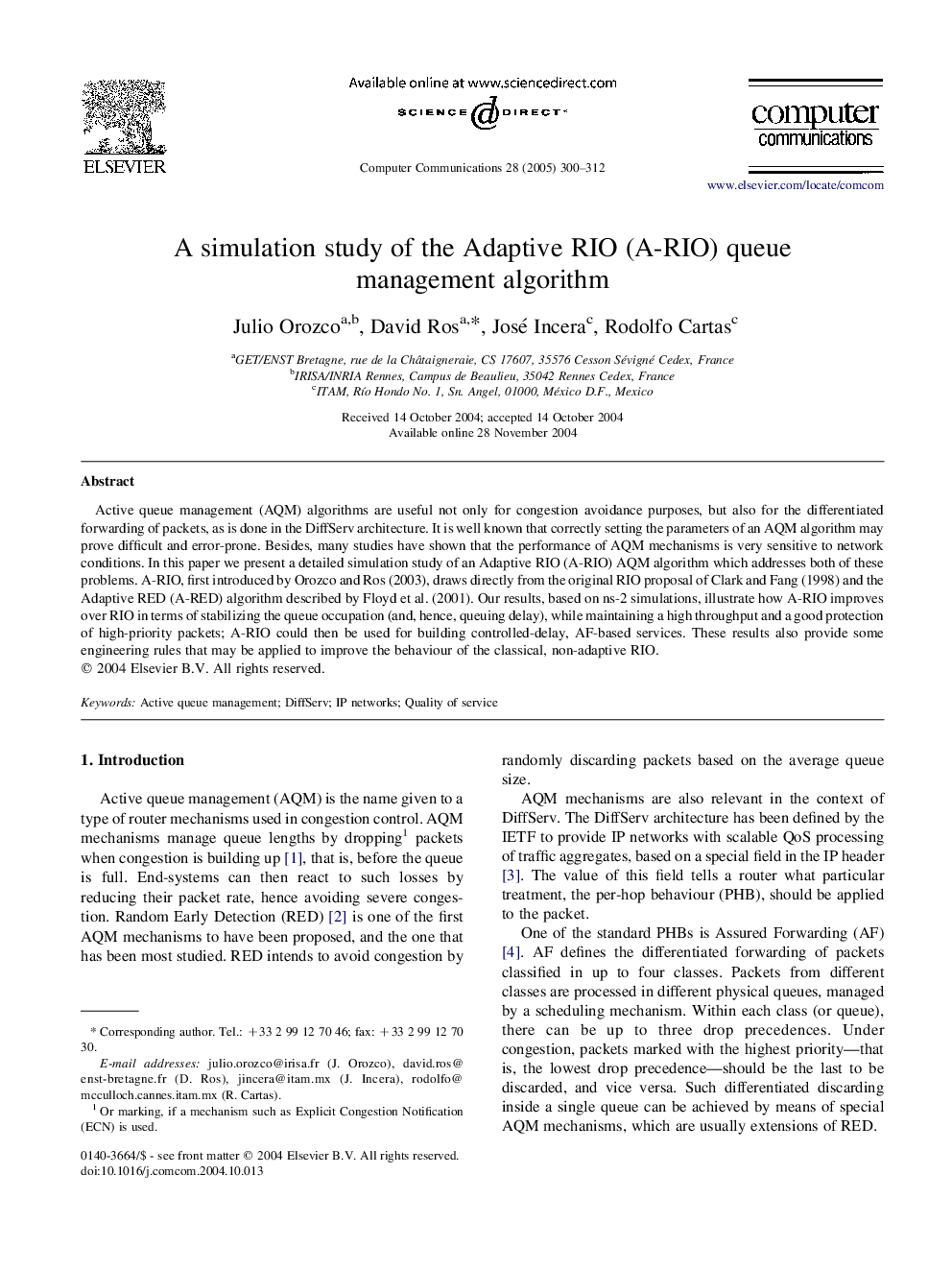| Article ID | Journal | Published Year | Pages | File Type |
|---|---|---|---|---|
| 10338573 | Computer Communications | 2005 | 13 Pages |
Abstract
Active queue management (AQM) algorithms are useful not only for congestion avoidance purposes, but also for the differentiated forwarding of packets, as is done in the DiffServ architecture. It is well known that correctly setting the parameters of an AQM algorithm may prove difficult and error-prone. Besides, many studies have shown that the performance of AQM mechanisms is very sensitive to network conditions. In this paper we present a detailed simulation study of an Adaptive RIO (A-RIO) AQM algorithm which addresses both of these problems. A-RIO, first introduced by Orozco and Ros (2003), draws directly from the original RIO proposal of Clark and Fang (1998) and the Adaptive RED (A-RED) algorithm described by Floyd et al. (2001). Our results, based on ns-2 simulations, illustrate how A-RIO improves over RIO in terms of stabilizing the queue occupation (and, hence, queuing delay), while maintaining a high throughput and a good protection of high-priority packets; A-RIO could then be used for building controlled-delay, AF-based services. These results also provide some engineering rules that may be applied to improve the behaviour of the classical, non-adaptive RIO.
Related Topics
Physical Sciences and Engineering
Computer Science
Computer Networks and Communications
Authors
Julio Orozco, David Ros, José Incera, Rodolfo Cartas,
